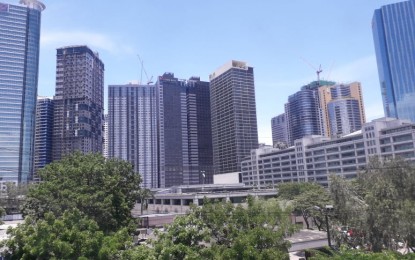
MANILA – Reforms instituted by the Duterte administration has allowed the country to be resilient amid the pandemic, Finance Secretary Carlos Dominguez said on Monday.
In an interview over state-owned PTV-4, Dominguez likened an economy to a human body that needs to be healthy.
“If you want to be resilient to disease, you need to keep healthy, you have to exercise. And that requires sacrifice. So what we did from 2016 to 2019 is like exercising,” he said, referring to the tax reforms pushed by the government that eventually became laws.
One of these measures is the Tax Reform for Acceleration and Inclusion (TRAIN) law, which exempts workers with annual income below PHP250,000 from paying personal income tax.
The same law imposed excise taxes on sugary drinks, a move targeted to address Filipinos’ consumption for sweetened beverages and lower their chances of having diabetes, among others.
Authorities said the government saves some amount from this law because there would be less people, particularly the poor, who will need hospitalization thus, less expense for the state.
Excise taxes for cigarettes were also increased.
Improvement in tax collections allowed the government to increase revenues and have more funds for its infrastructure and social protection programs, among others.
Dominguez said these moves allowed the government to be in a good financial position.
“Unfortunately, Covid (coronavirus disease 2019) hit. Now, because we were so healthy financially, it did not affect us like other countries,” he said.
He added credit rating agencies downgraded the ratings of several countries because of the impact of the pandemic but the Philippines has been spared to this so far.
A credit rating downgrade is a disadvantage for a country vis-à-vis its capacity to borrow from fund sources. It also means higher rates for its borrowings.
Last July 12, Fitch Ratings affirmed its investment grade rating, at ‘BBB’, on the Philippines but changed the outlook from stable to negative because of the economic impact of the pandemic on the domestic economy.
Dominguez dubbed the ratings outlook change as “normal” because of the pandemic.
“We maintain a good credit rating, which means that we borrow at very good terms for us so our children and grandchildren will not have to pay so high interest rates,” he said.
The domestic economy registered a contraction, as measured by gross domestic product (GDP), of 9.5 percent in 2020 due to the effects of the pandemic.
In the first quarter of this year, the contraction was at 4.2 percent.
Economic managers recently maintained their 6 percent to 7-percent GDP growth target this year as the economy re-opens and recovery efforts are being implemented. (PNA)
